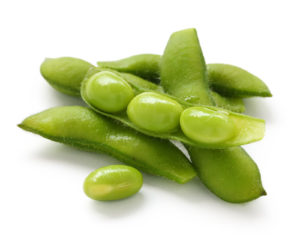Pros and Cons of Soy
Pros and Cons of Soy
There is a lot of controversy surrounding soy, but do you really know the pros and cons of soy consumption? Don’t worry, we are here to help! Let’s first begin with some background information on soy.
Soy & It’s Nutrients
Soy foods come in many different forms including; tofu, edamame, miso, natto, tempeh and milk, dairy and meat substitutes. Edamame is the immature soybean. In the United States, whole soybeans are rarely consumed as most consumption is soybean oil or meal, which is found in many processed foods. When the fat, known as soybean oil, is extracted from the bean, soybean meal remains. This meal is often times fed to livestock. Another thing to keep in mind when discussing soy, is how it is produced. 90% of the soy produced in the United States is genetically modified.
Pro tip: Soybeans must be cooked.
Soy has a rich and nutritious profile with 3.5 oz (100 g) of cooked, mature soybeans containing:
- 173 calories
- 9 g fat
- 10 g carbs, 6 of which are fiber
- 17 g protein
- high amounts of manganese, selenium, copper, potassium, phosphorus, magnesium, iron, calcium, vitamin b6, folate, riboflavin, thiamin and vitamin k
However, soy also has some nutrition characteristics that warrant concern. Soy contains phytates, which are substances that block the absorption of many of the above mentioned vitamins and minerals. Additionally, soy is high in omega-6 fatty acids which, as Americans, we get plenty of. Too many omega-6 fatty acids can be harmful to health because they lead to inflammation.
Potential Health Benefits
Some research has shown cholesterol lowering benefits of soy, more specifically in reducing LDL and total cholesterol when compared to animal protein consumption. The potential cholesterol lowering effects of soy does not impact risk of cardiovascular disease. Additionally, there have been observational studies examining soy and prostate cancer risk in men. However, caution should be taken as these studies examined participants for a short period of time and longer studies are warranted in order to asses benefits of soy and prostate cancer risk.
Potential Health Risks
Soy contains compounds known as isoflavones, which are endocrine disruptors that affect estrogen receptors in the body. Estrogen receptors are activated by estrogen, a steroid hormone that regulates sexual development and menstrual cycles, and lead to a physiological change. Estrogen receptors are not very selective and can therefore, be influenced by other substances such as isoflavones leading to disruptions in estrogen activity. Soy can also affect male reproductive health as well. Some research has shown correlation in high soy consumption and low sperm count however, correlation does not prove causation. Additionally, soy contains compounds known as goitrogens, which are substances that interfere with thyroid function. High consumption of goitrogens could potentially lead to symptoms of hypothyroidism.
Is soy right for you?
We can help! Book a free consult with our expert nutritionists here.




